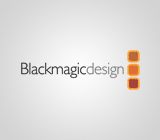|
|
Audio Meters don't match
Posted by Rob Weaver
|
Audio Meters don't match November 21, 2003 04:17PM |
When the the Toolbar audio meters read 0, they are at full deflection and attempting to push audio past that point causes distortion, which I would expect with dgital audio. However, in the audio mixer window, the master meters indicate 12 db of headroom past 0, but attempting to make use of this "headroom" only leads to distortion, indicating that there is really no headroom at all. At first I thought that the numbers represented the gain setting of the fader, and not the audio levels, but when the Toolbar meter reads 0, the Audio Mixer meter reads 0 as well, indicating that the 0 on the meter is audio level and not just fader gain. This pretty much renders the upper third of the Audio Mixer meters usless. If 0 is full deflection on one set of meters, it should be that way on all meters to avoid confusion and distortion.
Rob
Rob
|
Re: Audio Meters don't match November 22, 2003 01:55AM |
|
Re: Audio Meters don't match November 26, 2003 11:01PM |
Tom,
Respecfully, that dosn't make much sense to me. There is no way to measure how far you are overdriving the audio once you have gone past digital 0 because there are no more numbers to measure. In 16 bit audio, 16 bits is all you get. It would be like asking how far past 100% (not 100 IRE )white did you go. You can't know because there are no numbers to measure.
Apart from that, it breaks every digital audio convention in the book. In digital audio 0 is always maximum peak level. IMHO, the metering should be consistant.
I'm going to run some detailed tests with tones after Thanksgiving to see whats really going on.
Rob
Respecfully, that dosn't make much sense to me. There is no way to measure how far you are overdriving the audio once you have gone past digital 0 because there are no more numbers to measure. In 16 bit audio, 16 bits is all you get. It would be like asking how far past 100% (not 100 IRE )white did you go. You can't know because there are no numbers to measure.
Apart from that, it breaks every digital audio convention in the book. In digital audio 0 is always maximum peak level. IMHO, the metering should be consistant.
I'm going to run some detailed tests with tones after Thanksgiving to see whats really going on.
Rob
|
Re: Audio Meters don't match November 28, 2003 12:13PM |
The meter is measuring decibels not bits. It's measuring how many decibels above maximum value your sound would be if it wasn't clipped it 0. Try it. You'll see you can over crank the audio. In the application meters it will clip at 0. In the mixer is will show how far you've overdriven the audio, use the sliders to pull the audio back down and they'll match the app meters. I think it's pretty useful myself.
All the best,
Tom
All the best,
Tom
|
Re: Audio Meters don't match November 28, 2003 01:00PM |
In digital audio decibles are bits. You can't seperate the two. In the real world of analog sound, decibles is a measure of loudness and is entirely subective, although certain standards have been agreed upon. But these meters don't mesure loudness. They measure digital audio levels.
"It's measuring how many decibels above maximum value your sound would be if it wasn't clipped it 0"
The only way to accomplish something like this is with very complicated predictive FFT analysis which would take the previous time/specturm of the audio data and compare it to the current and upcomming data in order to approximate what the waveform might have looked like if it had not been clipped, because once the wave form is clipped, there is nothing beyond that point to measure.
I would suggest that a more reasonable explaination of the meter's behavior is that it is simply innacurate. But I will run some tests to find out.
Rob
"It's measuring how many decibels above maximum value your sound would be if it wasn't clipped it 0"
The only way to accomplish something like this is with very complicated predictive FFT analysis which would take the previous time/specturm of the audio data and compare it to the current and upcomming data in order to approximate what the waveform might have looked like if it had not been clipped, because once the wave form is clipped, there is nothing beyond that point to measure.
I would suggest that a more reasonable explaination of the meter's behavior is that it is simply innacurate. But I will run some tests to find out.
Rob
|
Re: Audio Meters don't match December 02, 2003 08:37AM |
Well, with FCP 4 Apple changed the Audio subsystem over to core audio, and by that FCP now processes audio in 32-bit floating point format.
At the end of the audio pipeline we need to convert that range into 16 bit or 24 bit data.
What they also did was to improve the internal headroom into +12 db (over digital 0).
This means that every bus channel has this extended headroom as does the master mixdown....until it gets clamped at 0 db by the output device.
So if you have a final mix that hits +2db in the mixer window you cound just lower the master fader to -2db
It also makes sense as Tom said to see how much you are over max peak.
This is normal practice in digital mixers, there is an internal headroom and an external one
It would be nice though to be able to set the reference level in the meters so you would be able to work in a more analog way like on Avids
At the end of the audio pipeline we need to convert that range into 16 bit or 24 bit data.
What they also did was to improve the internal headroom into +12 db (over digital 0).
This means that every bus channel has this extended headroom as does the master mixdown....until it gets clamped at 0 db by the output device.
So if you have a final mix that hits +2db in the mixer window you cound just lower the master fader to -2db
It also makes sense as Tom said to see how much you are over max peak.
This is normal practice in digital mixers, there is an internal headroom and an external one
It would be nice though to be able to set the reference level in the meters so you would be able to work in a more analog way like on Avids
Sorry, you do not have permission to post/reply in this forum.
Moderators:
Tom Wolsky, Nick Meyers



 All the news now and in your digital future
All the news now and in your digital future